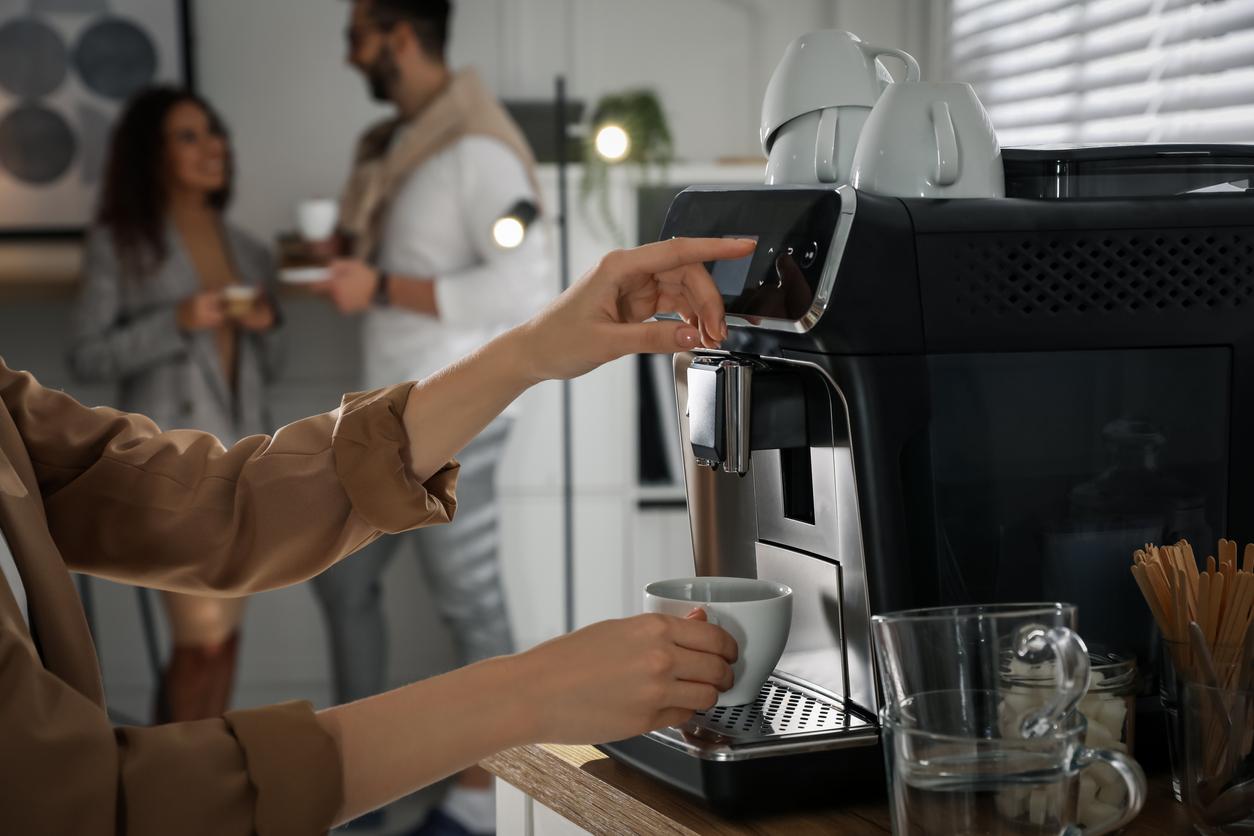Consumed alone, caffeine does not have the same effects on the brain as a cup of coffee. The benefits of coffee could be linked to other factors, including psychological ones.

- Drinking a cup of coffee makes you feel more alert.
- A study shows that coffee and caffeine do not have the same effects on the brain.
- The boost effect of coffee could be linked to psychological factors.
69% of French people drink coffee every day, according to a study by MaxiCoffee carried out in 2021. For many of them, it is unthinkable to start the day without drinking it. It gives the impression of being more awake and more alert. But what if that was just an impression? According to a study published in Frontiers in Behavioral Neurosciencefeeling awake from coffee could be a placebo effect.
How to understand the effects of coffee on our motivation?
The authors of this study, scientists from different Portuguese universities, recruited coffee drinkers to analyze the effects of the beverage on their brains. The participants all drank at least one cup of coffee a day and were asked to refrain from eating or drinking caffeinated beverages for at least three hours before the study. Two MRI scans were performed: one before the experiment and the second 30 minutes after taking caffeine or drinking a cup of coffee.
Coffee or caffeine: different effects depending on the type of consumption
Because of the known neurochemical effects of coffee consumption, scientists expected that MRI scans would show that people who drank coffee had higher integration of networks related to the prefrontal cortex, associated with executive memory, and networks linked to the processes of introspection and self-reflection. For the latter, the researchers noticed that connectivity was reduced both when participants drank coffee and when they took caffeine,”indicating that the consumption of caffeine or coffee made people feel ready to go from rest to work”, they note. Coffee consumption has also increased connectivity in the “superior visual network” and the “executive control network”, which the authors define as the parts of the brain involved in working memory, cognitive control, and goal-motivated behavior. “This did not happen when the participants took only caffeine”, they observe. “In other words, if you want to feel not only alert but also ready to start the day, caffeine alone won’t be enough, you have to experience that cup of coffee.”develop the Portuguese scientists.
How to explain these effects of coffee on our hoop?
“We might expect other caffeinated beverages to share some of the effects of coffeeadds Dr. Maria Picó-Pérez, co-author of this study. But some observations were specific to coffee consumption, and therefore linked to factors such as the particular smell and taste of the drink, or the associated psychological expectations.“The researchers raise another hypothesis: the effects observed could simply be the consequence of the relief of withdrawal symptoms, as the participants had been asked not to drink coffee before the study.Additionally, there might be individual differences in caffeine metabolism among participants that would be worth exploring in the future.“, indicates Professor Nuno Sousa, co-author. The team also wonders if coffees without caffeine cause the same effects. The scientists point out that other work is necessary to better understand the links between coffee and the brain.















